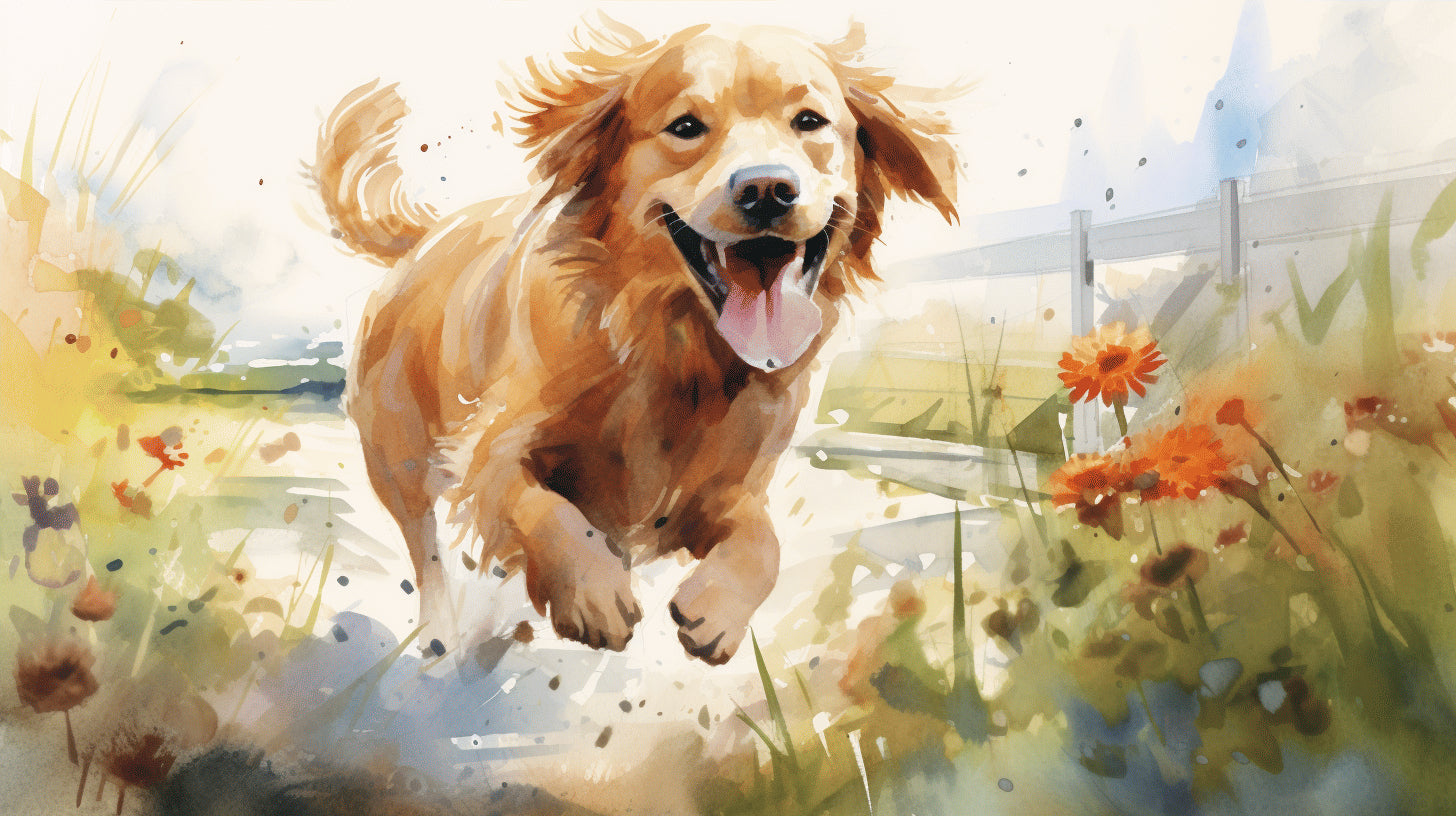When a beloved pet dog starts showing unusual behaviors, like excessive barking, property destruction, or even aggression, it might leave a pet parent feeling, well, dog-tired! These behaviors are often manifestations of a deeper issue — dog anxiety. Understanding and dealing with dog anxiety can become a formidable task without knowledge of the root causes and effective treatment methods. This comprehensive guide aims to shed light on the intricate topic of dog anxiety, providing stressed pet parents with crucial information to help comfort their canine companions. By exploring the causes and effects of dog anxiety, to assessing the available treatment options, this guide delivers practical solutions and techniques to alleviate dog anxiety. For an even more detailed outline on dealing with this concern, look into our comprehensive Dog Anxiety Tips and Techniques.
Prevalence and Causes of Dog Anxiety
Over recent years, one issue that dog parents have been increasingly facing is that of dog anxiety. From separation anxiety to fear and panic attacks, dogs aren't immune to mental health problems just like their human companions. Let's dive in to understand more about it.
Increase in Anxiety
It's startling to know that fear has skyrocketed in dogs due to other feline or canine companions - a steep increase to over 43% in 2022. Engage with your loving pets more, observe them closely, and you'll be surprised by what you discover. The most gentle of pets might be going under tremendous anxiety when left alone or around other animals. No roommates for your furry friend may perhaps be the better option!
Anxiety-like Behaviors
You might shrug off certain behaviors of your dogs as just "being a dog", but did you know that a majority of dogs express anxiety-like behaviors? As dog owners, it's our responsibility to spot these signs early. Each one of them could hint towards a bigger underlying issue. Always remember, communication between pets and owners is two-way. We have to lend a keen ear to their unspoken words.
Common Anxiety-Related Behavior
As far as dog owners' reports go, noise sensitivity comes out as the most common anxiety-related behavior in dogs. Thunders, fireworks, and even loud music might scare our little furry buddies more than we ever imagine. So, the next time there's a thunderstorm outside, or you're in the mood for some loud music, scan your pet's reaction. You might realize their world is louder than yours.
Regional Differences
This will surprise you, but dogs in New York reportedly have an anxiety rating 11% higher than the national average. Intriguing, right? The bustling city's noise, dense population, and fast-paced lifestyle might be too overwhelming for our loyal companions. It's yet another reason to reconsider that city life if your pooch seems in stress. After all, their comfort and happiness matter!
Separation Anxiety
Let's not forget the concept of separation anxiety, most common in dogs. Does your dog whine or get destructive when you leave them alone? Remember, it's not their way to get back at you for leaving them alone; it's a cry for help. They miss you and can't handle being alone. They need us just as much as we need them, if not more.
As dog owners, our love and care can play a transformational role in mitigating the anxiety. So, let's step up in our role to ensure our beloved dogs lead a life as joyful and carefree as they make ours.
Impact of Anxiety on Dogs and Owners
The relationship between humans and their animal companions runs on a two-way street. On one side, pet owners feel a profound sense of responsibility and concern for their pets' wellbeing. On the other side, dogs, known for their loyalty and attunement to human emotions, can mirror their owners' stress, often culminating in anxiety. Dog anxiety impacts not only the dogs themselves but also their owners. Let's delve into how anxiety affects both dogs and owners, shedding light on the reciprocal nature of this emotional bond.
Effects on Dog Owners
Firstly, living with an anxious dog can be incredibly stressful. Imagine hearing your dog whine incessantly, tear up furniture, or refuse to eat when you leave for work. A whopping 47% of Americans report feeling stressed when away from their pets, indicating a sharp rise in 'pet-parent' anxiety. The looming uncertainty — not knowing how your pet is faring while you're out — can take a significant toll on your psychological health.
Ironically, dog owners usually have lower depression scores than non-dog owners. But being a pet parent to an anxious dog can pose a stark contrast, often leading to feelings of helplessness, guilt, and in severe cases — frustration and anger.
Comorbidity with Fearfulness
Most dogs are susceptible to experiencing some form of anxiety during their lifetime. A startling 76% of dogs are known to undergo separation anxiety, while a reported 88% of dogs seen by a behavior specialist have anxiety-related disorders. Anxiety in dogs often coexists with fearfulness, making it challenging for pet owners to distinguish between the two aspects. When left untreated, the anxiety-fearfulness comorbidity can escalate, further complicating the issue.
In dogs, the symptoms of fear and anxiety often manifest as restlessness, trembling, excessive barking, destructive behaviors, tail tucking, and even aggression. These signs not only affect the dog's overall quality of life but can also lead to challenging situations for the owners.
Benefits of Pet Ownership
Against the backdrop of these downsides, it's paramount not to overlook the silver lining. Amongst the trials and tribulations, there are cherished moments and bonding experiences that come with owning a pet.
Pets, specifically dogs, are considered invaluable companions providing unconditional love, loyalty, and companionship. Dogs can sense human emotions and often exhibit physically comforting behaviors during their owners' distressing times. Amid the strains of the modern world, dogs can serve as emotional anchors, offering a sense of calm and safety.
Owning a pet can also provide physical health benefits such as increased exercise, lowering blood pressure, and improving cardiovascular health. Moreover, multiple studies indicate dog owners are generally happier and live longer since their furry friends help reduce stress and anxiety levels.
In the end, knowing how to navigate the emotional landscape of your canine companion is the first step towards a deeper and healthier relationship between owner and dog. Remember, your furry friend's anxious emotions are as real and significant as your own. Adopt a compassionate approach in managing these issues, and the positive impacts of pet ownership will overwhelmingly shine through.
Therefore, the experience of owning a dog, despite its hurdles, paints an overall satisfying and fulfilling picture. After all, as the proverb goes — "The more people I meet, the more I love my dog."
Treatment Options for Dog Anxiety
Feeling anxious is a natural part of life; even our furry companions are not exempt from this universal experience. All is not lost, though, pet parents can alleviate their beloved dogs' anxiety with a plethora of available treatment options. Using these strategies, you can create an environment of tranquility for your stressed-out pooch, from medications to calming products and even therapeutic music!Medications
Medications can offer a strong line of defense against dog anxiety. They serve as a practical solution especially for dogs suffering from severe anxiety or those whose symptoms significantly impact their quality of life. The common medications prescribed for anxiety in dogs include alprazolam, amitriptyline, buspirone, and trazodone. Each of these medications exerts unique beneficial effects, and your trusted vet will determine the best one for your precious pet's specific needs.
Please note: it's crucial to follow the veterinarian's prescription and dosage instructions meticulously without making any adjustments on your own.
CBD
Alternatively, CBD has been emerging as a holistic approach. Multiple studies suggest that CBD can significantly reduce anxiety symptoms in dogs, benefiting their emotional well-being. With its natural origins and minimal side effects, CBD proves a viable option particularly for pet parents who seek a non-pharmaceutical option to address their fur babies' anxiety.
Music Therapy
Perhaps surprisingly, studies show that certain genres of music, like reggae, can have a calming effect on dogs. Music therapy thus becomes another tool in the arsenal for combating dog anxiety. Combining this therapy with other methods, such as those suggested in our full guide on Relaxation Techniques for Dog Anxiety, can lead to even more efficacious treatment.
Gradual Acclimation
Gradual acclimation, especially for dogs suffering from separation anxiety, can be quite effective. This method involves slowly helping your dog get used to being alone by leaving them by themselves for gradually increasing periods. It's admittedly a process that requires patience, but the positive long-term effects, such as a less anxious and more independent dog, can make it worthwhile.
Calming Products
Lately, using calming products like special toys or treats has become increasingly popular. These products can range from chewy calming bites infused with anxiety-alleviating ingredients to soft, plush toys that your dog can cuddle with when feeling nervous. Selecting these products often depends on your dog's preferences and what you feel offers the most comfort.
Remember, understanding and addressing your furry friend's anxiety paves the way for a happier, more harmonious life for both of you. It's simply heartwarming to know that by trying these options, you're providing your precious pet with the best care possible.
Prescription Medications for Dog Anxiety
Understanding that your furry friend suffers from anxiety can be heartbreaking. As dog parents, it's essential to know there are ways to help our pets cope with these emotions better. One effective method of relief is through prescription medications specifically designed for dogs. Through these medications, managing anxiety in our pets can be a more achievable task.Approved Medications
Often, veterinarians prescribe medicines like Fluoxetine and Clomipramine to manage canine anxiety. Fluoxetine, familiar to many as the brand-named drug Prozac, is one such medication. It's been approved by the FDA for managing separation anxiety in dogs.
Similarly, Clomipramine Hydrochloride is another FDA-approved drug for the same purpose. Known as the generic for the brand name drug Clomicalm, it's specially designed to treat dogs' separation anxiety.
Choosing the correct medication for your pet should be a decision made with your vet, considering all aspects of your dog's health. The efficacy of these medications varies from dog to dog - just like humans, our pets react differently to different substances.
Rise in Anti-Anxiety Medication Use
Over the recent years, the use of anti-anxiety medication in dogs has been on the rise. Why?
Well, our understanding of dogs' emotions and psychological needs has significantly improved. We've become more aware that dogs can suffer from conditions like anxiety and depression, just like us.
While it might seem surprising, it's more about acknowledging these issues and finding effective ways to help our pets navigate these feelings.
It's also a testament to the evolving bond between humans and dogs. We're striving for a better understanding of our pets' mental health, recognizing that their wellbeing extends beyond physical health.
Overall, don't hesitate to approach your vet if you notice signs of anxiety in your pet. The conversation might lead to a solution that significantly improves your furry friend's quality of life. After all, isn't their happiness our ultimate goal?
Importance of Treating Dog Anxiety
Even the merriest of pups may feel blue and anxious. As caring dog-owners, it's crucial to understand how to detect and manage dog anxiety. When our furry friends are anxious, they not only feel miserable, but their quality of life is negatively impacted. Taking the proper steps to treat their anxiety will help them lead happier, healthier lives.
Negative Outcomes
Leaving dogs' stress and anxiety unattended can trigger negative outcomes. Anxiety is not just a widely ignored condition in dogs; it is a real issue that affects both their physical and emotional well-being. We often imagine our pawed pets as stress-free creatures, immune to the human plagues of worry and overthinking. Unfortunately, this is a misconception; dogs are as susceptible to anxiety and stress as humans are.
- Behavioral Issues: Anxious dogs have been known to develop behavioral problems such as biting, incessant barking, chewing on furniture, or other destructive habits. These behaviors often stem from a profound sense of fear or discomfort that dogs may feel in their environment.
- Health problems: Long-term anxiety can lead to health issues in dogs. They may suffer from poor appetite, digestive problems, and a weakened immune system, making them vulnerable to diseases.
- Lowered Quality of Life: An anxious dog may become less active, exhibit reduced enthusiasm for walks or play, and fail to enjoy life's simple moments. Anxiety limits their capacity for pleasure and contentment.
"A dog is the only thing on earth that loves you more than you love yourself." - Josh Billings
Our dogs deserve the best life we can offer. An untreated anxiety disorder can rob them of this opportunity. With love, understanding, and appropriate action, we can help ensure that our four-legged pals live not merely in our shadows but in their joyous, tail-wagging light. Needless to say, immediate action should be taken to prevent anxiety from undermining their happiness. The negative outcomes of failure to treat anxiety in dogs underpin the magnitude of this issue.
Ensure that every wag, every bark, and every joyful leap isn't marred by underlying anxiety. Because at the end of the day, we want to see our dogs revelling in their doggy life--playful, carefree and beyond happy. Treating dog anxiety isn't just a responsibility; it's a way we can express our love for these marvellous creatures.
Behavior Modification and Other Treatment Modalities
Caring for a canine friend can sometimes necessitate delving into the realm of behavior modification and other treatment methods, especially when dealing with issues like separation anxiety. In this section, we will explore some of the top treatment modalities out there- the Calmer Canine Treatment System, Sileo medication, behavior modification, and species-specific pheromones - which have all shown promising results for reducing canine separation anxiety and related behavioral issues.
Calmer Canine Treatment System
Forget invasive and high-risk treatments; the Calmer Canine Treatment System is here to change the game. This unique approach involves a simple, non-invasive technology that has demonstrated significant potency in reducing the symptoms of canine separation anxiety. The effectiveness of this treatment adds a ray of hope for many pet owners struggling with their pets’ anxiety.
Sileo Medication
Next on our list is Sileo, a specially formulated medication for dogs. What sets Sileo apart from other medications is its specific target: anxiety in dogs. Whether it's noise phobia or general anxiety, this medication has been known to bring about a sense of calm and balance in our beloved four-legged friends.
Behavior Modification
Another effective and practical method of treating canine behavioral problems is Behavior Modification. This method relies on established psychological principles and techniques to encourage desired behaviors while discouraging or removing undesirable ones. It’s a more personal, tender method employed by pet owners, and rightly so. After all, who knows your furry friend better than you do?
Species-specific Pheromones
Another surprisingly effective method is the use of Species-specific Pheromones. These are naturally occurring chemical substances produced by animals to communicate with others of the same species. For dogs, these pheromone-based products are often used to create a calming environment, thereby reducing anxiety levels and helping with behavior regulation.
These treatment options each possess unique qualities that can contribute to tackling stubborn canine behavioral issues. The key lies in understanding the particular needs of your furry friend, consulting with an experienced vet, and choosing the most suitable method (or combination of methods) accordingly. After all, our goal is the same - to help your beloved pet lead a happier, healthier life.
Conclusion
In light of the knowledge gained from this article, it's clear how essential it is for dog owners to remain vigilant and informed about their furry friend's anxiety. As responsible pet owners and lovers, our goal should be nurturing not just their physical, but also their emotional well-being. Remember, successful dog anxiety management lies not just in treatment but also in prevention.
To further strengthen your understanding of this topic, Empowered by Ashley provides an informative and practical guide on Dog Anxiety Tips and Techniques that pet parents can easily incorporate into their daily habits.
Lastly, remember that treating your pet's anxiety does not only improve their quality of life, but it can also significantly enhance your bond with them. It's a win-win situation. After all, as Ashley's team likes to say, "Anxiety-free pets make for happy homes." Together, let's strive to create such homes where our pets can thrive healthily and happily.
Frequently Asked Questions
-
What are some signs that my dog is experiencing anxiety?
Common signs of dog anxiety include excessive barking or howling, destructive behavior, pacing or restlessness, panting, trembling, panting, excessive licking, loss of appetite, and aggression.
-
What are some effective solutions for dog anxiety?
There are several effective solutions for dog anxiety, including providing a safe and secure environment, regular exercise, using calming aids like anxiety wraps or pheromone diffusers, obedience training, distraction techniques, and in severe cases, consulting with a veterinarian for medication options.
-
Can I use CBD products to help my dog with anxiety?
CBD products have shown promise in helping alleviate anxiety in dogs. However, it's important to consult with a veterinarian before using any CBD products as they can provide guidance on dosage and assess any potential interactions with other medications.
-
How can I create a safe and secure environment for my anxious dog?
To create a safe and secure environment for your anxious dog, provide a designated space or crate where they can retreat to, establish a consistent routine, use comforting scents like lavender or chamomile, and reduce exposure to triggers that cause anxiety.
-
When should I seek professional help for my dog's anxiety?
If your dog's anxiety is severe and significantly impacting their quality of life, it is recommended to seek professional help from a veterinarian or a professional dog trainer experienced in dealing with anxiety-related behaviors. They can provide a tailored treatment plan for your dog's specific needs.




















Leave a comment
This site is protected by hCaptcha and the hCaptcha Privacy Policy and Terms of Service apply.